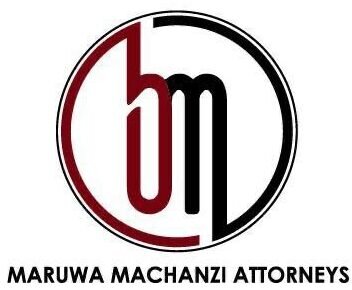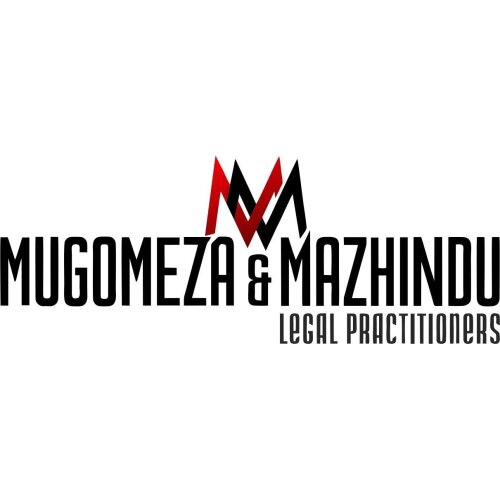Best Housing, Construction & Development Lawyers in Harare
Share your needs with us, get contacted by law firms.
Free. Takes 2 min.
Free Guide to Hiring a Real Estate Lawyer
List of the best lawyers in Harare, Zimbabwe
About Housing, Construction & Development Law in Harare, Zimbabwe
Housing, Construction & Development law in Harare, Zimbabwe, governs the legal framework for urban development, housing, and related construction activities. This includes land use planning, building code compliance, zoning regulations, property transactions, and tenant-landlord relationships. The Zimbabwean government is actively involved in crafting policies and regulations intended to ensure sustainable development, urban growth management, and the protection of property rights, making it essential for those in the housing and construction sectors to stay well-informed about legal requirements.
Why You May Need a Lawyer
Engaging with a lawyer knowledgeable in Housing, Construction & Development law can be critical in several situations:
1. Property Transactions: Whether buying, selling, or leasing property, legal guidance ensures that transactions comply with local laws and that your rights are protected.
2. Zoning and Planning Issues: Construction projects often face hurdles related to zoning laws and urban planning regulations. Legal expertise is crucial to navigate these issues effectively.
3. Contract Disputes: Construction contracts are complex, and disputes can arise regarding compliance, deadlines, and payments.
4. Tenant-Landlord Conflicts: Whether you are a tenant or a landlord, understanding your legal rights and obligations is necessary to resolve disputes.
5. Regulatory Compliance: Developers must comply with building codes and environmental regulations which can be challenging without legal assistance.
Local Laws Overview
Key aspects of local laws pertinent to Housing, Construction & Development in Harare include:
Urban Councils Act: This primary legal framework regulates how urban development is administered in cities like Harare. It outlines the roles and responsibilities of city councils in planning and development.
Regional, Town and Country Planning Act: This act governs land use planning, ensuring that development activities comply with established zoning regulations and planning standards.
Environmental Management Act: This act ensures all construction projects comply with environmental standards, aiming to mitigate the adverse effects of urban development.
Building Regulations: These involve specific codes and standards that construction projects must meet to be considered safe and compliant.
Land Acquisition Act: Addresses the acquisition of land for development purposes, usually emphasizing fairness and compensation.
Frequently Asked Questions
What are zoning laws and why are they important?
Zoning laws stipulate how land can be utilized in different areas. They are vital for proper urban planning, ensuring residential, commercial, and industrial activities are conducted in their suitable zones.
What should I consider before purchasing property in Harare?
It is essential to verify the property’s title deeds, ensure there are no existing encumbrances, and confirm compliance with local zoning laws and development plans.
How can I resolve a dispute with my landlord?
If direct negotiation doesn't work, you can seek mediation services or legal counsel to explore further options such as arbitration or litigation.
Do I need a permit for home renovations?
Yes, permits are often required for significant renovations to ensure compliance with building codes and safety standards.
What is the role of the city council in property development?
The city council oversees land use planning, issues permits, and ensures that development activities conform to zoning laws and environmental regulations.
How can I confirm if a construction project is environmentally compliant?
Verify whether the project has undergone an Environmental Impact Assessment (EIA) and received the necessary approval from relevant environmental authorities.
What legal documents are needed for a construction contract?
Construction contracts should include detailed terms about scope, timelines, payment schedules, compliance, and dispute resolution mechanisms, typically drafted with the help of a lawyer.
How does the government support housing development?
The government implements various housing policies, provides subsidies, and encourages private-sector participation to alleviate housing shortages and promote affordable housing.
Can a foreigner own property in Harare?
Yes, foreigners can own property but may face some restrictions. It is advisable to consult a lawyer to understand these conditions fully.
What is conveyancing, and why is it important?
Conveyancing is the legal process of transferring property ownership. It is vital because it ensures that the transfer is legally sound and that the buyer's interests are protected.
Additional Resources
Here are some resources and organizations that might be helpful:
City of Harare: Offers information on urban planning, building permits, and compliance matters.
Zimbabwe Institute of Regional and Urban Planners (ZIRUP): Provides insights into zoning laws and urban development practices.
Ministry of Local Government and Public Works: Oversees policies related to housing and urban development.
Environmental Management Agency (EMA): A resource for understanding environmental compliance in construction projects.
Next Steps
If you need legal assistance in Housing, Construction & Development in Harare:
1. Identify Your Needs: Determine the specific legal issue you are facing.
2. Consult a Specialist Lawyer: Seek a professional experienced in housing and construction law to provide guidance.
3. Gather Documentation: Collect all relevant documents and information related to your case or project.
4. Schedule a Legal Consultation: Discuss your circumstances thoroughly and explore potential legal solutions with your lawyer.
5. Follow Legal Advice: Adhere to the guidance provided by your lawyer to resolve the issue effectively.
Lawzana helps you find the best lawyers and law firms in Harare through a curated and pre-screened list of qualified legal professionals. Our platform offers rankings and detailed profiles of attorneys and law firms, allowing you to compare based on practice areas, including Housing, Construction & Development, experience, and client feedback.
Each profile includes a description of the firm's areas of practice, client reviews, team members and partners, year of establishment, spoken languages, office locations, contact information, social media presence, and any published articles or resources. Most firms on our platform speak English and are experienced in both local and international legal matters.
Get a quote from top-rated law firms in Harare, Zimbabwe — quickly, securely, and without unnecessary hassle.
Disclaimer:
The information provided on this page is for general informational purposes only and does not constitute legal advice. While we strive to ensure the accuracy and relevance of the content, legal information may change over time, and interpretations of the law can vary. You should always consult with a qualified legal professional for advice specific to your situation.
We disclaim all liability for actions taken or not taken based on the content of this page. If you believe any information is incorrect or outdated, please contact us, and we will review and update it where appropriate.
















